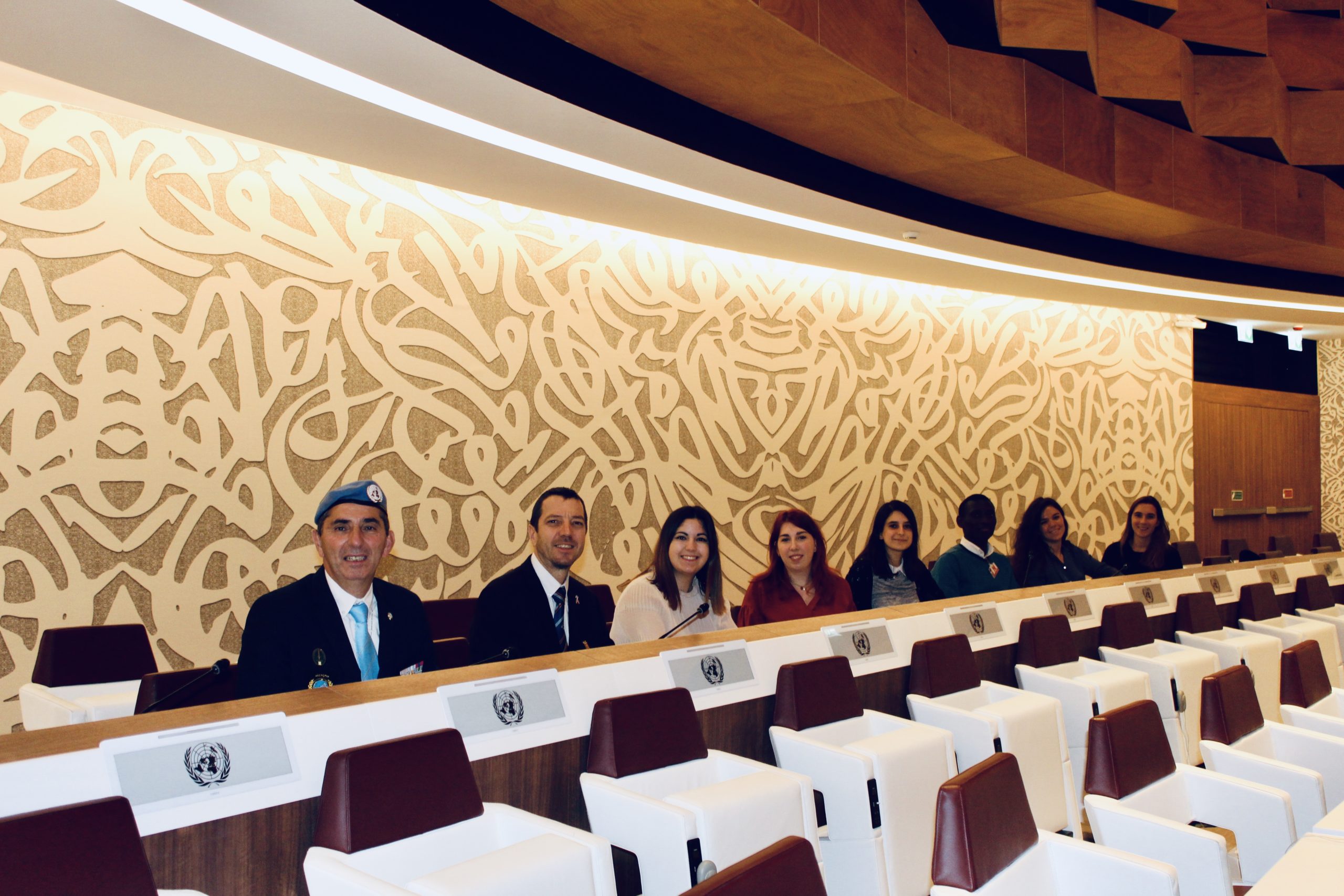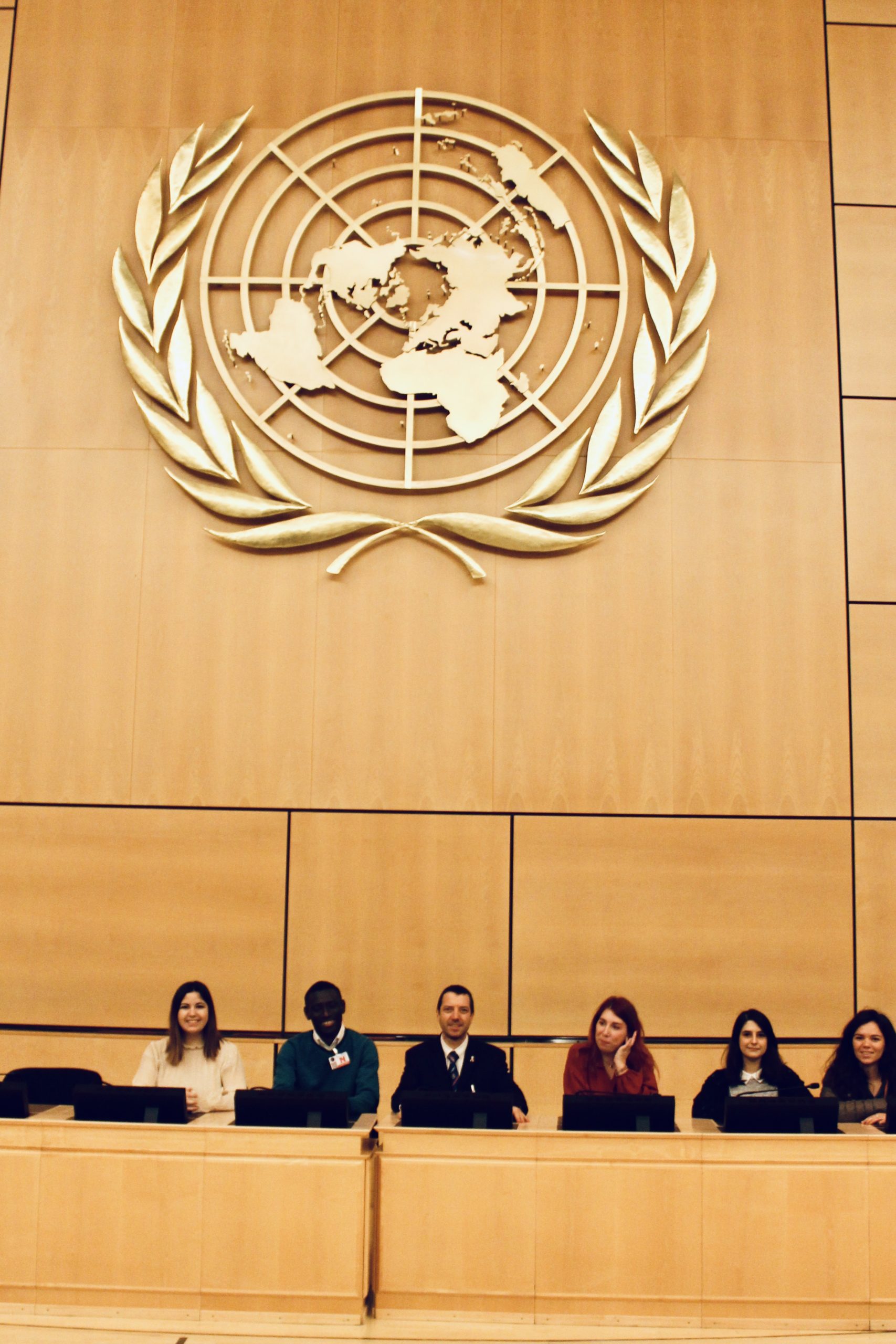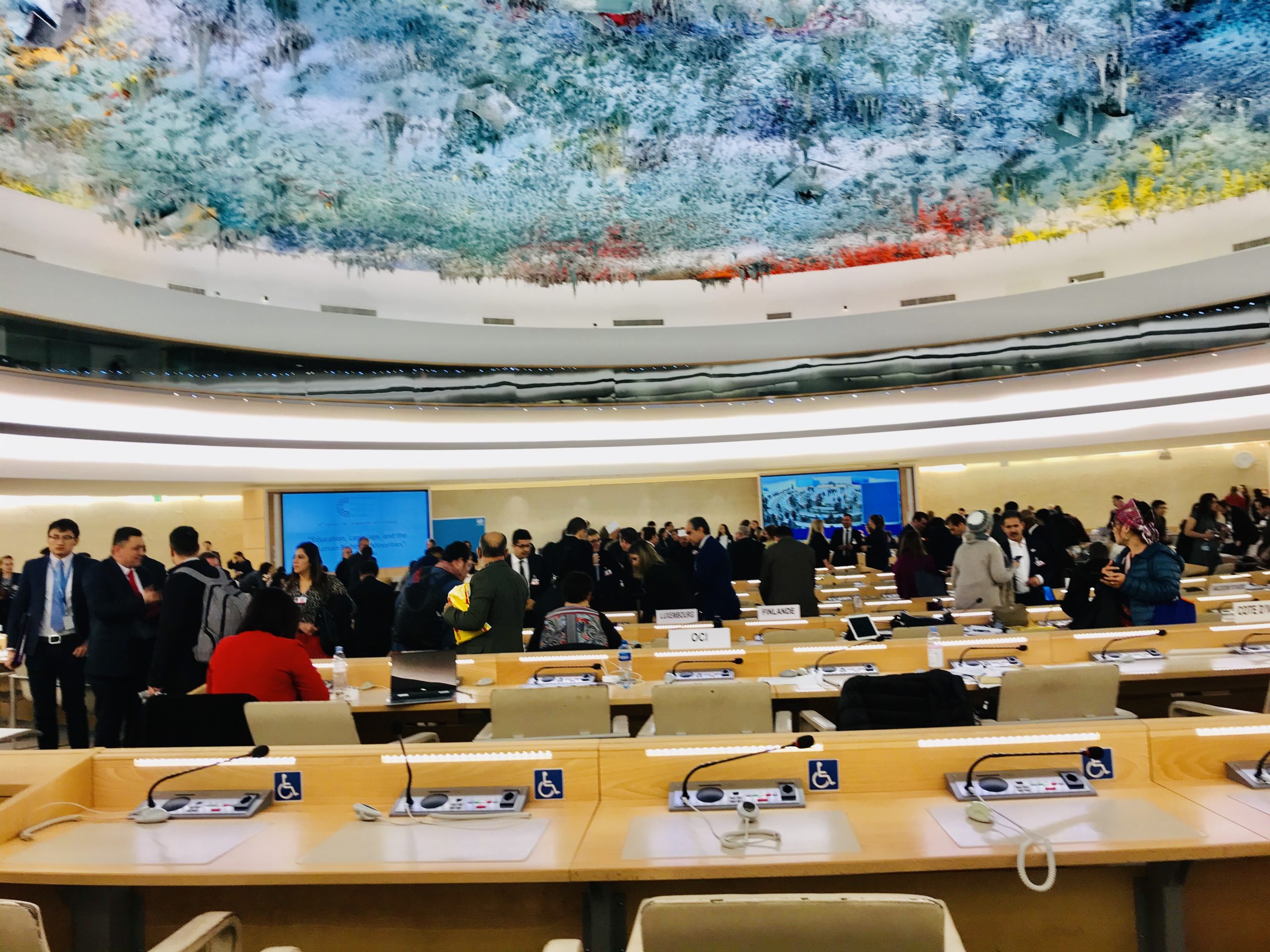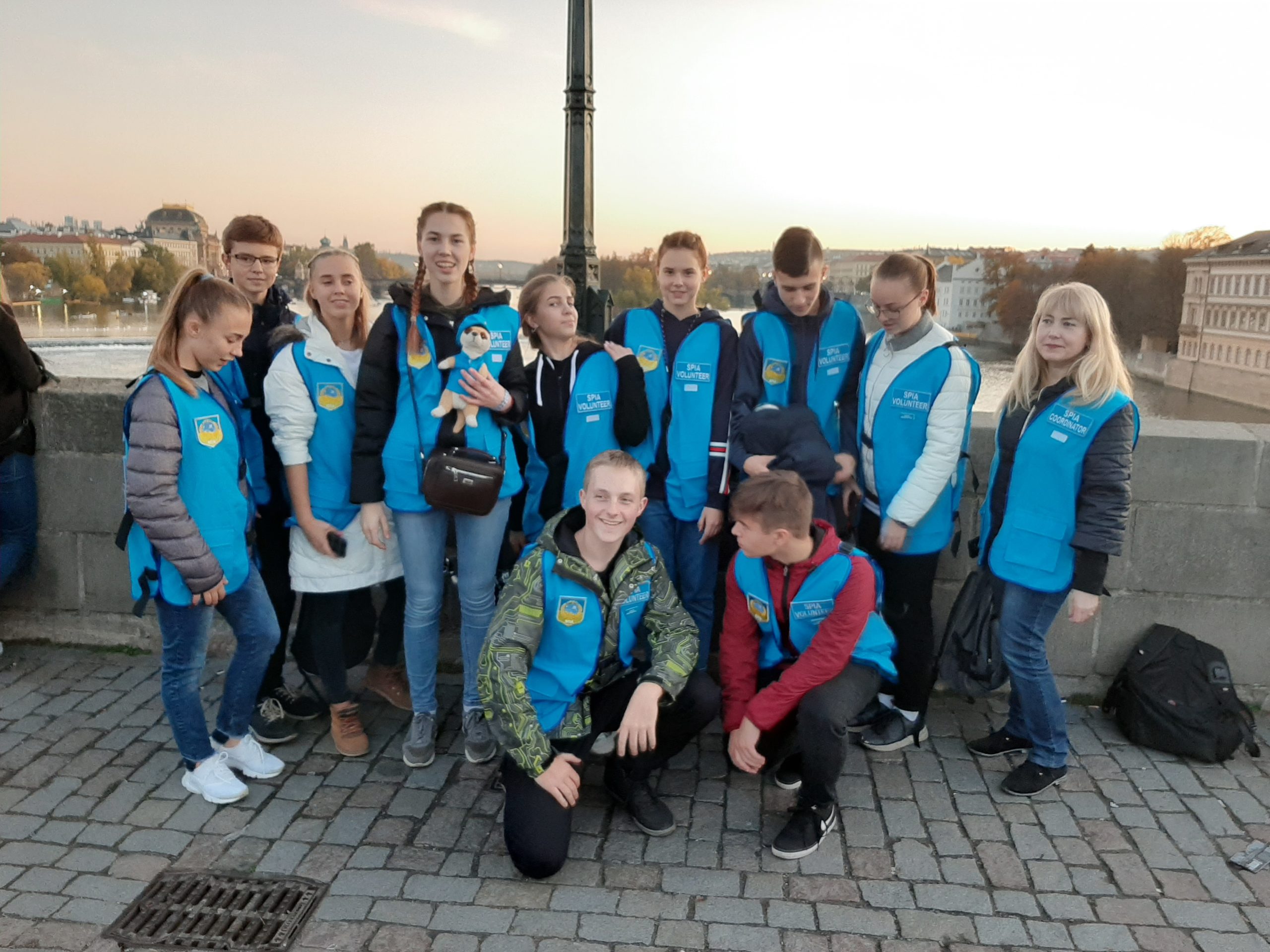The twelfth session of the Forum on Minority Issues was convened on November 28 and 29, 2019 at the « Palais des Nations » in Geneva pursuant to resolution 6/15 of September 28, 2007 on human rights and resolution 19/23 of March 23, 2012. This year, the Forum’s topic was « Education, language and human rights of minorities ».
The rights of linguistic minorities are human rights that are being questioned today. Throughout the world, minorities are increasingly facing significant challenges in the use and maintenance of their language, as well as in access to quality education and in particular to education that contributes to the preservation of their language, culture and identity. Today, this central topic is being debated within the UN to defend and popularize a right to the recognition of minority identities within each country in the first place. Secondly, some minorities claim secure access to minority language education, which is fundamental to the maintenance of linguistic diversity. Indeed, a language that is not taught is a language that will eventually disappear. The benefits of mother-tongue education are now scientifically established through UN-certified studies on children in different parts of the world. It is therefore necessary to promote this right among the 197 acceding countries of the United Nations.
In addition, the protection of minority languages, as well as recognition, respect and the promotion of the educational needs of minorities is a crucial element for the protection and preservation of minority culture. As well as the promotion of the diversity of society, and thus an important factor in reducing inter-ethnic tensions and conflicts prevention.
The conference was an opportunity for State delegations to take the floor, as well as NGOs, while respecting a speaking time of two minutes granted by the President :
- Kurdish culture was discussed several times during the conference : in Iran, Kurds consider themselves deprived of the right to live their cultures while eleven million Kurds lived in Iran in 1979 during the Islamic Revolution. However, it has been reported that the Iranian Constitution recognizes the right of minority languages and cultures to prosper in the country, according to article 19 of the Constitution, which stipulates that all people of Iran enjoy equal rights regardless of religion or ethnicity, but in reality this results in an increasingly strong stigmatization of Kurdish identity. Mr Salih AKIN, member of the Paris’s Kurdish Institute and assistant professor of linguistics at the University of Rouen, took the floor to talk about Kurdistan : the work, research and literature exist and are prolific despite the lack of official recognition. At the end of the convention, the delegation representing Iran was granted a right of reply which it used to stipulate Article 15 of the Iranian Constitution which establishes the teaching of minority languages as permitted in the country. They mentioned Kurdish as a language taught in faculties, and even as a TV network broadcasting programmes in minority languages. The Kurdish-swiss alliance also mentioned the fate of the Kurds in Turkey, where the number of schools has risen from 365 to 200 since 2014. The Flowers association referred to the Kurdish minority in Syria as victims of the Syrian army, with more than 1200 victims recorded in a city from the south, chemical attacks and an obligation to convert to Islam in March 2018.
- The Uighur case in China has also been much criticized by the international community for a culture that is being lost through the restriction of education, language and culture : indeed, systematically, the forced and official abandonment of Uighur identity for Chinese culture has been denounced, with the closure of schools and the prohibition of this language and its culture from school programmes, as well as the internment of refractory Uighurs in camps since 2017. During their right of reply, the representatives of the Chinese delegation refuted these allegations by promoting their country’s policy of bilingualism and inclusion, particularly through schools, the transmission of culture and the agreement left to the Uighur population to converse in Uighur language.
- The Pakistani delegation stated that it allowed and promoted multilingualism, multiculturalism and the proliferation of religions on its territory to combat xenophobia, violence and persecution. Therefore, they called on the international community to take action to address the Indian position in the Kashmir region, which is losing its identity in the face of the closure of mosques in particular. The response of the Indian delegation was quite virulent with a refutation of the Pakistani remarks by stating that « India itself violates the rights of its minorities so we have no lessons to learn from a false democracy ». Following this, the Conference President granted Pakistan a final right of reply by announcing « Can you deny the arbitrary exclusion of 1.5 million Bangladeshis from your territory? That they were deprived of their rights? Can you deny the multiple reports of the international community of torture cases and arbitrary imprisonment? ».
- The reporter of the UN Mission for Education, Juan de Dis Simon, spoke for seven minutes to promote the right to language, culture and education throughout the Latin American continent, while recently many education programmes have been promoting colonialism and/or state policy. He stressed at length the need to get to know and educate young people. He also mentioned the fact that seventeen Latin American countries are not in a position today to recognize minority languages and cultural identities in their countries because the policies put in place are too weak. As indigenous people are not sufficiently integrated, the reporter recommended that the international community and the countries concerned improve statistics on the different ethnic groups in order to promote and adapt certain public policies and finally set up specific local programmes. In conclusion, he called for education in all its forms in minority languages to preserve some captivating cultures but also to enable them to understand the evolution of their respective countries and not to be stigmatized.
- Members of a foundation for the defense of the Azeri people have condemned Daesh’s crimes against human rights : the surviving Azeri people have been living in makeshift camps in Turkey and Kurdistan for some years now, creating serious problems in terms of housing, education and the transmission of Azeri culture from generation to generation.
In conclusion, this conference enabled us to conclude that education and teaching of minority languages is a crucial importance to many minorities around the world : several organizations are addressing the issue, particularly at this conference, and tirelessly report on the extent to which public policies should contribute to the effective implementation of the human rights of persons belonging to minorities with regard to the use of their languages in education. It is therefore necessary today to promote this teaching in order to preserve and promote minority languages and identities, in particular through a pedagogical approach.
The final aim of this conference is to reflect, based on the results of these two days of debate, on the best ways to address the issue of education in minority languages and the teaching of these languages through various recommendations. The latter will be presented by the Chairperson of the Forum and the Special Reporter for the follow-up to the work of the Forum.




